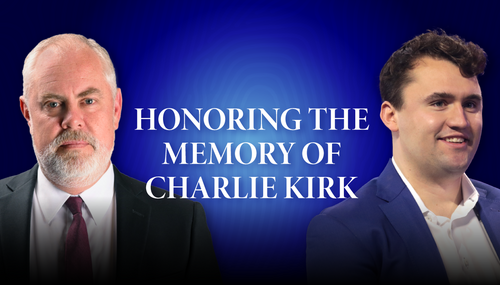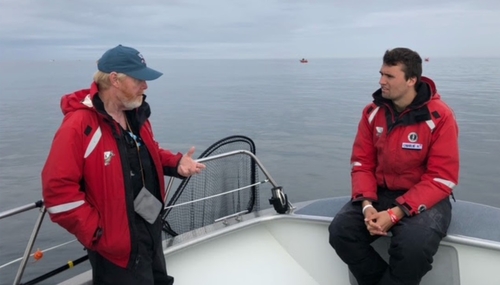The Washington Post topped off its Style section today by interviewing filmmaker Jonathan Demme on his documentary following around Jimmy Carter on the book tour of his tome Palestine: Peace, Not Apartheid. When asked if he worried that Carter's book was "too tedious" as a film subject, Demme suggested Carter as The Answer to the War on Terrorism:
Whether we want to admit it or not, most of us Americans, certainly me, feel we are trapped in this terrifying, potentially cataclysmic situation where we feel as Westerners that we are in a conflict with [the jihadists] in the Middle East, and we're looking for a way out. Carter's message of peace provides that. I got excited when I heard about the book tour. . . . Here is a man with Camp David under his belt; he thinks he can solve this. Maybe we can catch lightning in a bottle and learn something about how that archaic notion of peace can be achieved.
Did Demme miss the rise of Ayatollah Khomeini during the Carter era and the Iranian taking of American hostages that followed? Did Carter ever find "a way out"? The radical Islamic regime that took hold during Carter's presidency has been a major state sponsor of terror ever since. But liberals only hear the man's rhetoric, and never stare at the results. Liberals turn around (like Hillary Clinton) and charge instead that Bush is "emboldening" terrorists.
Post reporter Richard Leiby began by asking about Carter's inflammatory book title, and Demme said he thought Carter chose the "supercharged" word of apartheid, but underestimated the furor it would cause -- and then he refused to back down, due to a "presidential-sized ego."
In the film, Carter says it's the only time in his life that he's been called a liar, a bigot, an anti-Semite and a coward, and "this has hurt me." Why do you think he caught so much flak for that book?
Having watched all of that go down closely, it's perfectly clear that he calculated to get attention to the book by using that supercharged word, apartheid, in the title. . . . But he miscalculated the intensity of the response. If I were him I would have said, "Wait a minute, Archbishop Desmond Tutu called it apartheid first," but Carter's ego prevents him from hiding behind the bishop's robes. Jimmy Carter, man of peace that he is, and great American that he is, also has a presidential-sized ego. Because of his ego, he's going to stand there like Gary Cooper in "High Noon" and take the heat.
This might be the first time in media history that someone has found it apt to compare Jimmy Carter to Gary Cooper in "High Noon." If not, it should be rare. It's like comparing Reagan to Ben Kingsley in "Gandhi."
In an AP article also on the WashPost web site, David Germain revealed that Demme originally wanted to take Carter to the scene of the American hostage taking for his film, which Carter naturally wasn't going to approve:
Addressing Carter, Demme continued: "Do you remember what my first idea was? I said, `Let's go to Iran,'" the site of the hostage crisis at the U.S. embassy to which Carter's defeat by Ronald Reagan in the 1980 election generally is attributed. "`Maybe we could fly in to Tehran and go find the embassy and see what happens.'"
"We very quickly got a better idea," Carter said, laughing. "Then the next thing he talked about was Katrina, to go down to New Orleans, just something dramatic. I was already involved to some degree down there with Habitat for Humanity and still am."
Demme later hit on the "idea of just following me around as I tried to sell this book. That turned out to be amazingly controversial."
Jewish leaders were vexed over Carter's assertions that Israel was harshly mistreating Palestinians in the West Bank and Gaza and his comparison of conditions there to apartheid, the former system of racial segregation in South Africa.
"I chose each word in the title very carefully. `Palestine,' not Israel, not the Holy Land. Peace is what I wanted to pursue, not apartheid," Carter said. "There's no doubt in anyone's mind that goes there that the apartheid being perpetrated in the West Bank exceeds in its ferocity in many ways what was in South Africa."
In picking the title, Carter, 83, said he wanted to be provocative, encouraging debate that might help bring peace to Israelis and Palestinians. He anticipated criticism but was surprised at its ferocity.
"I didn't expect the ad hominem attacks. Nobody attacked the book. They attacked me as being senile or a liar or a plagiarist," Carter said. "That was a surprise. But I've been through that before. I didn't feel that I was susceptible. I know I'm old, but I'm not yet senile, and I know I'm not a plagiarist. ...
"And I'm not an anti-Semite. My main goal in life for the last 30 years in the political realm is to bring peace to Israel, and I think this book will make a small step toward that direction."
"Man From Plains" shows Carter doing press interviews defending his thesis, meeting with rabbis and speaking at Brandeis University, where Harvard law professor Alan Dershowitz, a critic of the book, had hoped to debate him.
Dershowitz was not allowed into Carter's talk at Brandeis, but Demme gave him free rein to speak on camera, incorporating his comments into "Man From Plains." Demme said he made sure to include opposition voices so he would not face similar criticism that Carter did with his book.
Still, the film presents a warmly sympathetic portrait of the former president.
"I feel that this man is literally obsessed with peace, with the notion of peace," Demme said. "But our current leadership I feel is clearly obsessed with war, with the feeding of victory. ... Thank God for this president who dares to speak about peace as an achievable goal. It fills my heart with so much hope."
Carter won the Nobel Peace Prize in 2002 for his decades of work in mediating conflicts, including the Camp David Accords between Egypt and Israel while he was in the White House and his humanitarian travels for the Carter Center since.
Along with the two-dozen books he has written, it's a dazzling legacy that Carter could not have foreseen when he embarked on an uncertain future after leaving office in 1981.




